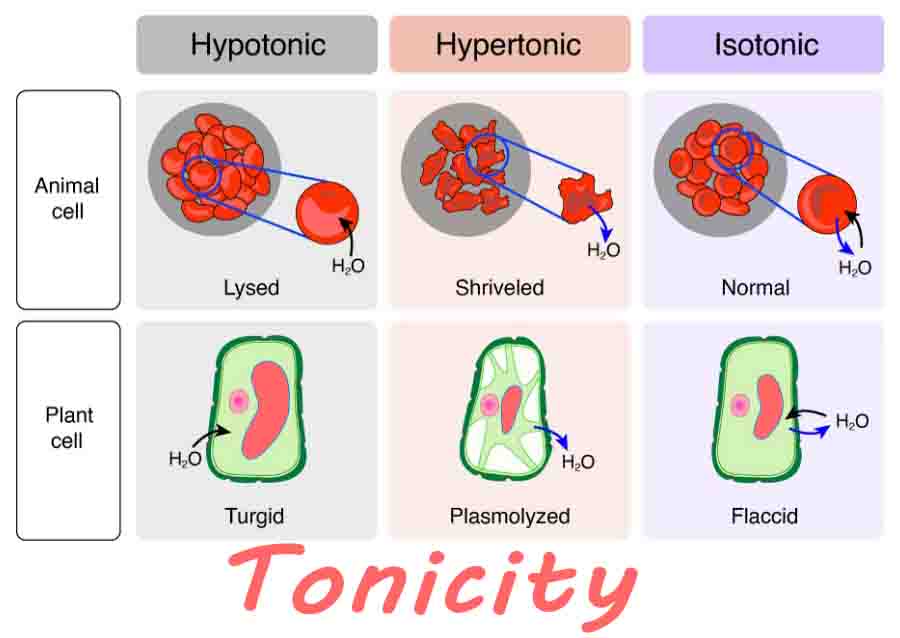Tonicity Definition
Tonicity refers to the concentration of a solution in comparison to another solution. Concentration refers to the amount of solutes dissolved by a solution. A hypertonic solution has a higher concentration of solutes (less water) than another. Hypotonic solutions have a lower concentration of solutes and more water than other solutions.
The concentration of solutes in isotonic solutions is the same. Tonicity of the environment determines how water moves across semipermeable membranes in biology. Below is a graph that shows the tonicity of different environments, and how water moves. Water moves to balance the concentration gradient of the solutes.
A high concentration of solutes will be followed by a low concentration of solutes.
Due to its polar nature, water is capable of dissolving solutes. A temporary hydrogen bond is formed between water molecules and solutes due to the different electrical poles on each water molecule.
As a result, solutes are distributed and water is moved to new locations. As solutes are added to water, tonicity increases, but a solution can only be labelled with one of the specific terms of tonicity when compared to another. The amount of water required to dissolve two different solutes is also different.
Silicon, for example, may take many water molecules to dissolve, while another may dissolve completely in high concentrations. Osmolarity, or the total concentration of all dissolved solutes, can be used to describe the overall tonicity of water.
Related Biology Terms
- Hypotonic – When one solution contains more water and less solutes than another solution.
- Hypertonic – A solution of higher concentration that the solution it is being compared to.
- Isotonic – Two solutions that exist with the same solute concentration.
- Osmolarity – The concentration of a solution in parts of solute divided by volume of water.

